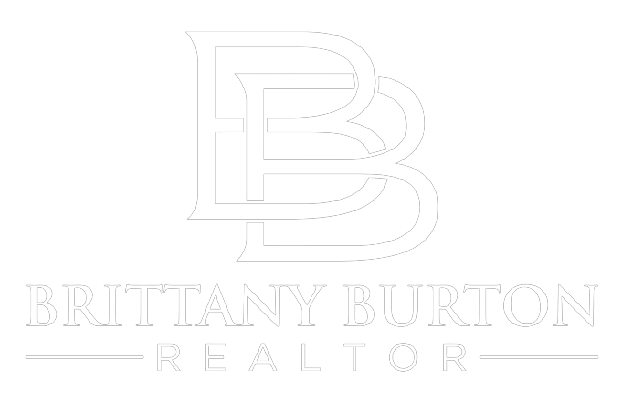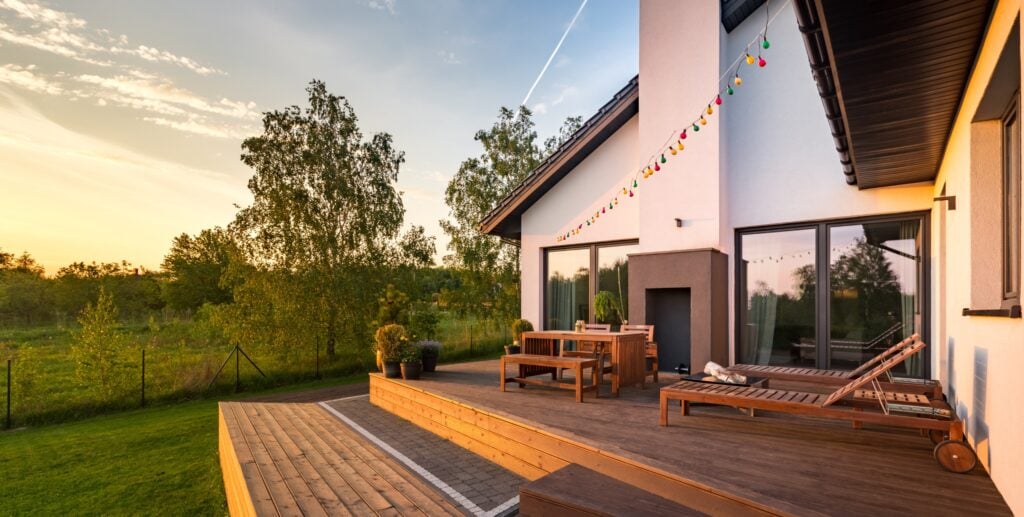There are many reasons for wanting a second home. Whether you’re taking the leap into real estate investing and need a property that can cash flow each month or you just need a place to live the summer, second homes are a mainstay in the classic “independence” lifestyle.
However, buying a second property is a serious financial commitment. And if buying a primary home is one of the biggest financial transactions you’ll make, then buying a second home can be just as big. Therefore, before buying a second home, it makes financial sense to calculate whether you can afford the purchase cost and maintenance.
So, whether you’re looking to find an ideal beach getaway, a commuter home near a major city, or a rental property to start a real estate portfolio, you need the best advice on buying a second home.
This article explores the steps required to take ownership of a second residential property. You’ll learn how to choose a location, find financing, and close a deal.
When is a second home a good investment?
There are many financial benefits to buying a home in addition to your primary residence. We’ll list them below.
cash flow
Renting out your second home as a short-term rental when you are not living there or as a long-term rental is a great way to get started in real estate investing and start building cash flow.
Appreciation
Although the property market experiences ups and downs, general trends show that property values appreciate over the long term. This means you can expect a healthy rate of appreciation in the long run, quietly building your net worth.
tax benefits
Buying a second home means you have access to several tax benefits, thus reducing how much you owe to the IRS. For example, you may qualify for the mortgage interest deduction or the property tax deduction.
However, it is wise to seek good financial advice before considering a second home for tax purposes. Property tax laws on real estate investments are subject to change. And depending on the number of days you occupy the additional property, the IRS may consider it a second home or investment property, each with different tax implications.
How many houses can you afford?
Before buying a second home, it is important to assess your financial situation.
For example, you may need to qualify for a second home mortgage. It is also good to have enough income and savings to cover unexpected expenses. For example, what would you do if you had increased vacancies? Can You Make Mortgage Payments Even When Interest Rates Go Up? There are also additional expenses to consider in owning a rental property.
Mortgage lender requirements for a second home
Mortgage lenders typically require a higher down payment for a second home, a higher minimum credit score, and will give a higher interest rate.
It is recommended that you have a down payment of more than 10% and have plenty of cash on hand. There are also many lenders that will require you to live in the property for at least part of the year.
Calculate debt-to-income ratio (DTI) requirements
Mortgage loan approvals are always subject to debt-to-income ratio requirements. For example, if you are buying a second home, you will generally need a DTI of less than 45% to be pre-approved for a second home mortgage.
Here’s a quick way to calculate your debt-to-income ratio:
- Add up your monthly bills including mortgage payments, credit card payments and other loan payments.
- Divide the amount by your gross monthly income (pre-tax income).
- The result is a percentage representing your DTI – the lower the number, the lower your risk to mortgage lenders.
Vacation Home Vs Investment Property
Knowing the difference between a vacation home or an investment property is important. For example, tax benefits, financing and mortgage options vary based on your home use.
Generally, a vacation home is one that you own for the purpose of entertainment or stay in the property for ten percent less time than the rent. On the other hand, a second home becomes an investment property when tenants occupy it for most of the year.
how to buy a second home
Buying a second home requires the same careful and financial calculations as when you bought your primary residence. However, running costs, mortgage options, loan payments and maintenance can exceed your current home.
Consider all the costs of buying and selling a second home
Before you commit to buying a second home, it’s important to crunch the numbers.
Here are some expenses to consider:
- property taxes: You have to pay taxes on secondary assets like primary residence. However, depending on your tax situation, you may qualify for a property tax deduction.
- maintenance: Maintaining a second home can be relatively expensive as you are usually dependent on third party contractors. For example, a property management company, lawn services, emergency repairs and maintenance affect your income flow.
- Utilities: Long-term tenants typically pay for utilities as part of the lease agreement. However, for short-term rentals of vacation homes, you must calculate the cost of energy bills. For example, in winter, ambient indoor temperature is necessary to avoid dampness and mold problems.
- Insurance: It costs more to insure a secondary home than your main residence. Also, depending on the type of property – vacation home or investment property – you will have to choose between different insurance options. For example, hazard insurance may be required for some beach resorts. And insurance for rental properties is more expensive than for a second home.
Explore Your Financing Options
Successful real estate investing depends on getting the right financing options. But the mortgage qualifications for a second home will be stricter than your existing mortgage. Also, loan options depend on specific credit score requirements for investment properties or vacation homes.
A jumbo or conventional loan are the two most common financing options when buying a second home.
- Conventional Loan: To qualify for a conventional loan, you must meet income and down payment requirements set by Freddie Mac and Fannie Mae and within limits set by the FHFA (Federal Housing Finance Administration). However, there are two restrictions with this type of loan with respect to second homes:
- You must have a credit score of at least 620. However, the higher it is, the better it is to get the best interest rates.
- You cannot rent your home for more than six months in a year; Otherwise, it is classified as an investment property.
- Jumbo Loan: Also called a nonconforming conventional mortgage, this loan option can be useful for financing the purchase of real estate. Here are some of the requirements to get approved for a jumbo loan:
- Credit score of at least 700 (some lenders set a minimum credit rating of 720).
- Debt-to-income ratio below 45%.
- Some lenders require that you have enough cash on hand to cover 12 months of mortgage payments.
get pre-approved for a mortgage
Getting pre-approved for a mortgage is important at the beginning of your real estate investing journey. Pre-approval lets you know how much you can afford for a second home. Additionally, the financing process moves much faster when closing a real estate deal.
Do market research for potential housing markets
As is the case with any real estate investment, it is important to exercise due diligence when purchasing a property home for rental or as a second home. Therefore, you must thoroughly research housing markets with solid investment potential.
Here are some key tips to find the right kind of property:
- Decide whether the property is for rental, your second residence, or a mix of both.
- Analyze current market trends in the local area you are considering.
- Research the neighborhood for quality of life, amenities and proximity to major amenities.
- Check out five or six comparable properties to find the best deals.
- Calculate the average price of comparable properties.
The next step in the home buying process is to find a local real estate agent to help you find your ideal second home.
Find a Reputable Real Estate Agent
An experienced real estate agent is invaluable when buying a second home. They’ll cover all the bases to find you the best deals for your needs – which is important if you’re buying property in another state. They can also hold preliminary talks with the seller, thereby saving you travel cost and time.
A good estate agent is still useful when buying a second property in the local area. This is because they can find the ideal property for your lifestyle requirements. For example, the type of property suitable depends on whether you are planning to buy a second home or an investment property. Or do you want to move into your new home and want to rent out your existing property? In these cases, the services of a local real estate agent are vital.
To find a great, qualified real estate agent, use our Agent Finder tool!
make offers
Once you’ve found your dream home, it’s time to make an offer. You can work on your negotiation strategy and how much to offer with your real estate agent. This includes the contingencies in the sale agreement and how much earnest money (down payment) you can afford.
Whether you make an offer below the listing price or meet the buyer’s price depends on whether the home’s value is fair and how much of the property you want. But, again, your real estate agent can guide you through the process.
If the buyer accepts your offer, you begin the process of closing the deal. If the buyer makes a counteroffer, you’ll need to negotiate how much you’re willing to spend.
close
It can take 30 to 45 days for a house to close. However, it can be longer depending on issues in the mortgage application, home appraisal and home inspection. During this period, the closing agent does all the necessary work to transfer the ownership of the property from the buyer to the seller.
Here are the steps required while closing on a property deal:
- Open Escrow Account: Typically, your real estate agent opens an account where the deposit, the earnest money, and the lender’s money are kept.
- Find a Closing Agent or Real Estate Attorney: Some states require you to hire a real estate attorney to close the deal and file the paperwork.
- Title Search and Insurance: This step confirms the legal ownership of the property. Insurance protects you and the lender from title defects, liens or encumbrances.
- House Evaluation: Your lender arranges for an appraisal of the property to ensure that the value is accurate. A value lower than the listing price can affect how much money you can borrow. Therefore, you may have to negotiate a lower selling price with the seller.
- Home Inspection: Getting the home inspector’s report lets you know the real condition of the property. Typically, the sales contract contains a contingency agreement that allows you to discover serious structural or other major issues.
- Final Walk-through: You and the agent can walk through the property — usually 24 hours before closing — to make sure everything is ready to sell. You check that all repairs have been completed, the property is damage free, and that it is clean.
- closing day: The big day has come for you to become the legal owner of your second home. On the day of closing you pay the closing costs and additional fees and sign all the paperwork. Finally, the closing agent arranges for the seller to receive the funds from the escrow account.
conclusion
Buying a second home is an exciting process and can be a wise financial move. However, in order to ensure that the second home suits your lifestyle requirements, it is necessary to remember the following aspects:
- Decide the reason for buying the second property – is it a holiday home or an investment property?
- Make sure you have the financial means to buy and maintain a second home.
- Do due diligence at every step to get the best mortgage loan, find a good estate agent, and find a property that matches your financial goals.
Find a Lender in Minutes
Many things do not just happen. Quickly find a lender that specializes in investor-friendly loans that are right for you and your investment strategy.
Note by BiggerPockets: These are the views expressed by the author and do not necessarily represent the views of BigPockets.





